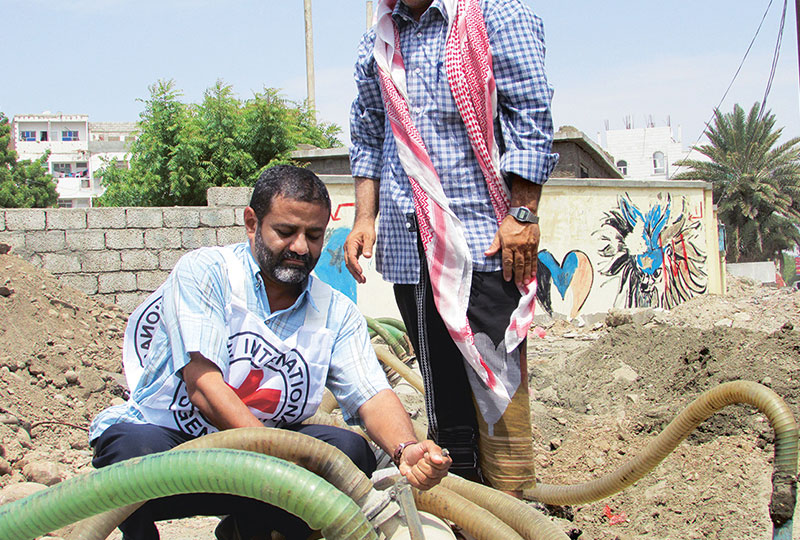As long as people resort to conflict to settle their differences, there will be a need for independent organizations like the International Committee of the Red Cross (ICRC) to come to the aid of people affected by the violence.
Today, sadly, this need is as great as ever. International and internal armed conflicts alike continue to tear apart communities and entire countries in all corners of the globe. And as the world’s population becomes increasingly urban, conflicts are often waged in the streets and the very places where people live and work.
Meanwhile, other types of violence – between criminal networks, gangs and police forces, and ethnic groups – are causing ever greater suffering, in part because military-style weapons are increasingly available.
Heavy toll
In all these cases, those not involved in the fighting continue to be killed indiscriminately or even targeted, and large groups of people are forced to flee their homes, leaving them with no access to food, water and shelter. At the same time, new technologies such as remote-controlled and robotic weaponry, the emergence of cyber-warfare, and the proliferation of conflicts involving non-State armed groups raise questions as to whether the rules of war are sufficient or need to be further developed.
The law of war
The rules governing how war can be waged and who is protected are codified in a body of law largely based on the Geneva Conventions and known as the law of war or international humanitarian law. This body of law includes a number of treaties that, among other things, limit the use of force, prohibit certain weapons and protect civilians, prisoners of war and wounded, sick and shipwrecked members of the armed forces. As conflicts of the twenty-first century unfold, the ICRC will continue striving to provide vital assistance and protection. We will also play a central role in promoting humanitarian law and clarifying, developing and strengthening this crucial body of law in response to the realities of modern warfare.
Emerging needs
The ICRC constantly seeks creative ways to address today’s complex and evolving crises. The plight of migrants around the world is one such example. More and more people are leaving their homelands in search of food, work or a safe place to live, and the risks they take to improve their lives all too often have tragic consequences. That is why we will continue to seek new ways to help migrants and meet other critical, emerging needs.


